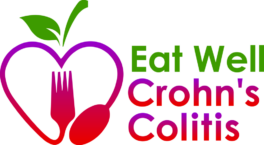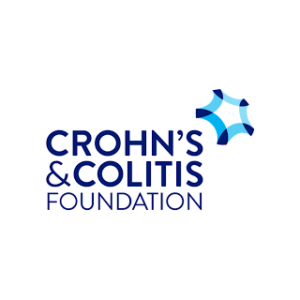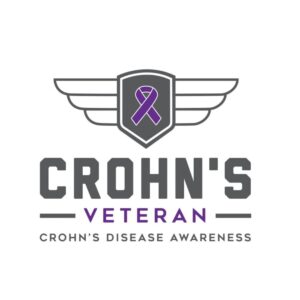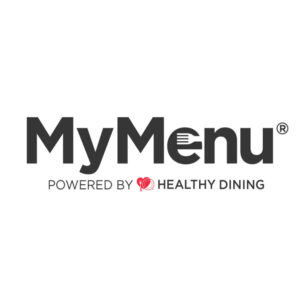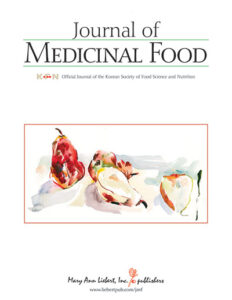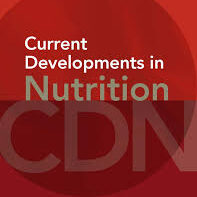Top 8 Research-Backed Diets for Crohn’s Disease
Danielle Gaffen, MS, RDN, LD
- Last Updated
My husband was diagnosed with Crohn’s disease 15 years ago. Most of his GI doctors over the years have told him that the foods that he eats should not affect his Crohn’s disease symptoms. But I beg to differ…
At his sickest, my six-foot tall husband weighed 127 pounds. When I see pictures from that time, I see a skeleton looking back at me. Poor guy had become afraid of food because he associated it with pain. He couldn’t figure out which foods made him feel bad, so he just kept on eating how he normally did before his diagnosis with Crohn’s disease.
I met him right before I had gone back to school to obtain my master’s in nutrition. I spent every opportunity during grad school to focus on autoimmune diseases to see how I could fill in the gaps his doctors failed to mention. I’m proud to say that he has gained back 40 pounds to reach a healthy weight for his height. Today, we are closer than ever to understanding which foods his gut can digest without pain.
Crohn’s is a very complicated autoimmune disease because the dietary and nutrition recommendations can look very different for each Crohn’s patient. What works for my husband may not work for you (or your loved one) with Crohn’s disease. Today, I’d like to share the eight diets that are currently recommended for people with Crohn’s disease. While these diets have some key similarities, they are all “elimination diets”, which eliminate certain foods that may be intensifying Crohn’s symptoms. These diets are restrictive in nature and may not work for everyone. Read below to learn more about the eight elimination diets currently recommended:
Crohn’s Disease TREAT Diet (CD-TREAT diet) [1]
This is an individualized anti-inflammatory diet that excludes foods like complex carbs, while increasing protein, vitamins, minerals, and fiber to try to change the microbiome (replacing more of the bad microbiome bacteria with good, healthy microbiome bacteria).
Foods included on this diet are fruits, veggies, high-fiber, lean meats, increased protein, vitamins, and minerals.
This diet does not allow lactose (dairy products), processed meats (lunch meats, sausages, smoked meats), animal fat (butter, lard), alcohol, or emulsifying agents (like lecithin).
Crohn’s Disease Exclusion Diet [2,3,4,5]
Allows fruits, veggies, meats, and carbs, but aims to get rid of foods that make the diseased gut worse. Specifically, certain animal fats, meats, and food additives like maltodextrins and emulsifiers are cut out on this diet. Note that this diet is often paired with liquid nutrition formula supplements like Boost or Ensure shakes prescribed by doctors or registered dietitians.
Foods included on this diet are selected fruits and veggies, fish, eggs, and lean meats.
This diet does not allow dairy, gluten, processed meats, animal fat, canned and packaged foods, coffee, alcohol, or emulsifying agents.
Autoimmune Protocol Diet [6,7]
This is an extension of the Paleo diet and focuses on cutting out refined sugars and gluten. The emphasis on eating more fresh, nutritious foods like lean protein that are high in fiber can help to keep inflammation, intolerance, and poor gut health at a minimum.
This diet allows fruit and most vegetables (except for nightshades such as asparagus, bell peppers, and tomatoes); healthy fats; broth; and fermented foods (like pickles, sauerkraut, and yogurt); as well as meats.
This diet does not allow dairy, grains, legumes, eggs, nuts, seeds, nightshade vegetables, processed and refined foods, trans fats, alcohol, sugar substitutes, and emulsifying agents.
Inflammatory Bowel Disease Anti-Inflammatory Diet [8]
This diet does not allow refined sugar (such as those made from cane, beets, or corn); gluten-based grains (wheat, rye, barley); and certain starches, all of which could feed bad gut bacteria in the microbiome.
This diet allows most fruits and veggies; soluble fibers (oat bran, barley, nuts, seeds, beans, lentils, peas, etc.); flax meal; chia seeds; oats; certain cultured yogurts and cheeses; nut and bean flours; omega-3; eggs; fish; and lean meats.
This diet does not allow most dairy, gluten-based grains, fruits with seeds, refined sugars, processed foods, or trans fats.
Specific Carbohydrate Diet [9,10,11,12,13]
A diet with a cult following (and the one which my husband is currently trying out), this diet is an exclusion diet which allows proteins, fats, and carbohydrates that consist of one sugar molecule (like glucose found in honey, fruits, and some veggies, or the lactose found in some milk products). The idea behind one-sugar-molecule carbs is that they are the easiest for the gut to digest, reducing the risk of bad bacteria overgrowing in the gut microbiome and causing inflammation.
This diet allows lactose-free products, fresh fruit and veggies, nuts, eggs, certain yogurt, aged cheeses, and unprocessed meats.
This diet does not allow most dairy products, grains, most beans, canned fruits and veggies, refined sugars, processed or canned or smoke meats, packaged foods, tea, or coffee.
Mediterranean Diet [17]
New research indicates that fewer Crohn’s patients had active disease after following this diet for six months. This diet may be easier to follow than the SCD Diet, and other health benefits are associated with the Mediterranean Diet, too!
This diet is characterized by a high consumption of veggies, fruits, cereals, nuts, legumes, unsaturated fat (such as olive oil), a medium intake of fish, and dairy products.
This diet also includes a low consumption of meats and sweets.
Semi-Vegetarian Diet [14]
This is a largely plant-based diet which recommends daily consumption of brown rice, miso soup, yogurt, vegetables, fruits, beans, and potatoes. It also recommends eating fish once per week and only consuming meat once every two weeks. The idea of this diet is to encourage high fiber intake and increase good gut bacteria in the microbiome with as few restrictions as possible.
This diet is mostly a vegetarian diet, allowing fruits and veggies, beans, brown rice, miso soup, and yogurt. This diet only allows fish once a week, and red meat or poultry once every two weeks.
Low Microparticle Diet [15,16]
This diet does not allow certain food additives (found in powdered foods with anti-caking ingredients and certain food colorings), because they may cause inflammation in people with Crohn’s disease. Note that the results have been mixed, so I personally would not recommend this diet.
As you may know, my husband has Crohn’s disease. We’ve experimented with a few of the diets listed above over the years, but right now we are trying out the Specific Carbohydrate Diet. I’m happy to share that we’re starting to notice some really positive changes: he has less inflammation, cramps, and urgency to use the restroom! Hooray!!
While these diets may be a helpful start, every person with Crohn’s disease has an individual response to different foods and exploring a new diet can feel overwhelming and scary. Additionally, each person has unique nutritional needs. I can help you choose which of these diets may be best for you, and how to fit them into your lifestyle. Have you tried all of these diets already without feeling any better? Work with me to create your own customized Crohn’s diet tailored to your specific nutrition needs.
This article was originally published on April 19, 2021 and has been updated with new diet research.
